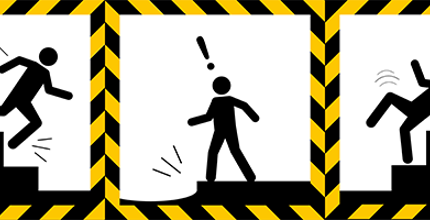Avoid Brain Fog (or Why Being Mentally Fit for Work is Super Important)


Anxiety can be a major cause of issues. Not just for yourself, physically, but at home, at work, in your social circles – everywhere. And one of the most common effects of anxiety is what’s known as brain fog.
Brain Fog is that feeling you might have after you’ve pulled an all-nighter – where you just feel slow. You’re not as sharp as you usually are, and you start to make small, silly mistakes which can often affect your confidence and your ability to soldier on through the day. Think of your brain like a radio station. The more things that get in the way between your antenna and the broadcast tower, the more static is introduced, which makes it hard to hear your favourite radio announcer or tunes. Then, it’s harder to listen to what’s actually going on with all the distractions and ‘static’ (or noise) that is coming from your radio.
In most cases, this noise can cause small errors which are usually uneventful, like dropping things, forgetting things, or things which might bring you a bit of frustration.
On occasions though, Brain Fog can actually be life threatening.
This week, we saw an apprentice who admitted factors at home may have caused them to be affected by brain fog. This led to the apprentice accidentally cutting the wrong conduit and receiving an electric shock.
The apprentice is fine, but it’s easy to see how this can be a serious issue.
So what can you do?
Firstly, talk to someone. Sometimes, even just verbalizing an issue with someone else can help you process it, and figure out ways for you to cope or manage better. And we know from studies that this can be very harmful for your own health – so if you need to speak to someone. And, if you don’t have anyone close to you who you can chat to over a coffee, seek help from a reliable source – such as Mates in Construction, Beyond Blue, Black Dog Institute – or one of the many other mental help services Australia has to offer. Remember: There are no prizes for keeping things bottled up, and keeping your stress all to yourself.
Secondly, try and figure out what is causing the issue. For example, you may be stressed about something at work, or maybe a personal or family issue. If you can figure out the root cause of the issue, you can potentially then confront it. This could lead you to recognise how long the issue is likely to be around for, and therefore may help keep you on top of the noise that it can generate.
Thirdly, make some time for YOU. No matter what form that takes – don’t let a ‘lack of time’ be an excuse from having some you time. If that’s going for a bike ride, playing a video game, doing some yoga, reading, or even enjoying a long soak in a bath – you should aim for 30 to 60 minutes of doing whatever brings you joy and helps you unwind a day.
Fourth, investigate some good healthy habits. This might mean, for you, going for a 30 minute walk a day. Trying meditiation. Drinking less alcohol. Maybe drinking less coffee. Good, healthy habits contribute to better sleep and a less ‘noisy’ mind. You start to feel better about yourself, which in turn means your mind is less noisy and therefore you tend to sleep better and concentrate better during the day.
There are many more things you can do to foster a healthy mind, free of brain fog. If you think you might have even a small case of it, we highly recommend you speak to one of the many great mental health organisations across Australia. You can find a list of them and their contact details here. If you’re a part of the EGT/CET group, you can also contact WorkLink on 1800 468 001.
Not only will it help prevent you from having a potentially major event at work, like the apprentice did, but it will also spill into other areas of your life and make you an overall, happier and more centred person.













